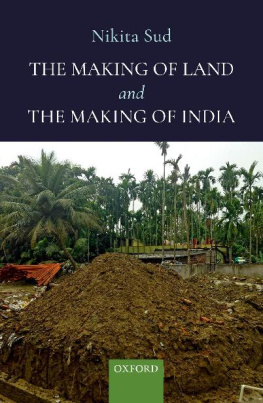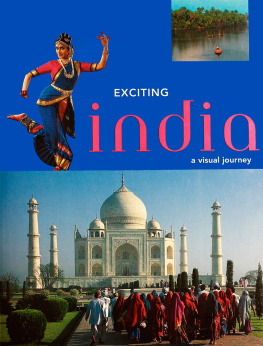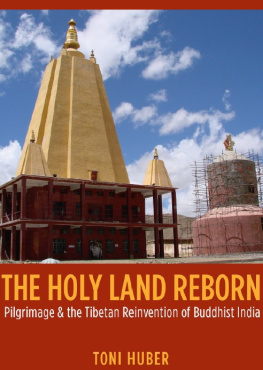India
Lotis idea in going to India was to discover if in the Buddhist faith he could find anything to replace the Catholic religion in which he could no longer believe. He visits the ruined temples of the ancient gods, listens to the languorous Oriental music on the moonlight nights; he experiences nameless dreads, indescribable terrors.
Pierre Loti, perhaps the worlds most prolific, romantic and exotic travel writer and novelist, was born as Julien Marie Viaud in Rochefort in Western France in 1850. A childhood fascination with exotic lands across the seas led him to embark on a naval career that enabled him to seek love and adventure in many latitudes. He drew on these real life experiences when writing the romantic novels and travel books that made him one of the most popular authors of his day. Although his prolific output brought him both fame and fortune he remained a romantic escapist and never gave up his beloved naval career. He retired from the French navy in 1910 and died in 1923.
The Pierre Loti Library
Siam
Aziyad
Egypt
Japan
Madame Chrysanthemum
Morocco
India
Japan and Corea
The Sahara to Senegal
Jerusalem and the Holy Land
Tahiti
The Marriage of Loti
The Iceland Fisherman
A Tale of the Pyrenees
A Tale of Brittany
Pierre Loti: Romance of A Great Writer
Edward B. DAuvergne
First published in 2002 by Kegan Paul International Ltd
This edition published in 2013
by Routledge
2 Park Square, Milton Park, Abingdon, Oxon OX14 4RN
Simultaneously published in the USA and Canada
by Routledge
711 Third Avenue, New York, NY 10017
Routledge is an imprint of the Taylor & Francis Group, an informa business
Kegan Paul, 2002
All Rights reserved. No part of this book may be reprinted or reproduced or utilised in any form or by any electric, mechanical or other means, now known or hereafter invented, including photocopying or recording, or in any information storage or retrieval system, without permission in writing from the publishers.
ISBN: 0-7103-0814-0
British Library Cataloguing in Publication Data
A catalogue record for this book is available from the British Library.
Library of Congress Cataloging-in-Publication Data
Applied for.
INDIA
INTRODUCTION
IT is midday on the Red Sea. There is light, light everywhere, so much light that cries of admiration and astonishment are forced from us; it is as if we issue from gloom into a clear air of boundless space. The passage from our Northern Autumn to the perpetual Summer that reigns here, is made almost imperceptibly by our modern ships that do not heed the wind. Silvery crested waves dance on the blue waters, and the sky seems more distant from the earth; the clouds, too, have more definite form and are further off; new depths of space become apparent, and our horizon is extended.
It seems as though our eyes could appreciate new forms and colours in the increasing brightness which we had been unable to perceive before. From what a land of shadows we must have come, and what can this festival of light be that has sprung on us suddenly and unbidden?
A melancholy brightness pours relentlessly on this land of tombs, this country thick with dust of bygone races; but we forget it when we reach our northern clime, and are surprised to find it there once more on our return. Its rays shine constantly on the hot and languid gulfs, and on their sand or granite shores; it bathes the ruins and that world of dead stones which guard the ancestral faith and the secrets of those the Bible tells us of. This melancholy light is ever present, just as it must have been in the old, sacred times, and these things give our narrow imagination a sense of infinity, and tell of a time without beginning or end. The biblical times, however, whose antiquity inspires our trust, are but of yesterday when we look back on the history of the world, fearful in the immensity of the past. This superb and intoxicating brightness is but the passing effect of our slowly decaying little sun upon a favoured zone of our still smaller earth, an earth that nestles close to him, as if frightened by the vast and chill orbits of the other planets.
The blue sky too, enwoven with the phantasy of passing clouds, that looks so deep, is but a thin, deceptive veil that serves to screen the yawning space behind. No, this is all nothing, only the space behind is real.
This empty space, this black abyss into which worlds ceaselessly fall, this kingdom that knows neither commencement nor decay, is the one eternal reality.
I must yet spend some seven or eight days amidst the shining blue of heaven and sky before I reach my journeys end. I make my way to India, the cradle of human faith and thought, with nameless dread, fearing that I may find nothing but a cruel and final deception.
I have not come here to make a trifling call, but to ask or beg the keepers of the Aryan wisdom to give me their belief in the lasting duration of the soul in place of the ineffable Christian faith which has vanished from my soul.
The day declines in wondrous splendour. The sun that draws us with him in the madness of his eternal wandering will soon have passed from our view. Our side of the world will turn towards that deep space, towards that land of shadow which the transparencies of the night air will let us see more clearly. But now the magic of the evening, with the burning rays of coppery rose, steals on us. In the east a chain of desolate mountains, whose granite slopes glow like a furnace, rise from the sea. They are Sinai, Serbal, and Horeb, and the feeling of religious respect, which centuries have impressed upon our race, invades us once more.
The burning summits do not linger long, for the sun has sunk beneath the waters and the evening enchantment is over. Sinai, Serbal, and Horeb fade in the twilight, and are no longer distinguishable. Were they other than crests of jagged rock, idealized in our minds by the superb poetry of Exodus? Vast and calm night will soon restore all things to their true proportions, for space is already filled by legions of wandering suns which make me think of the black emptiness into which they and we are falling. I dream, too, of the miserable fate of our little planets chained to a sun that they can never hope to reach, ever attempting to narrow the orbits of their mad circlings, instead of plunging into space as do the more glorious suns.
A cloudless limpidity spreads from the zenith to the horizon, and the limitless void into which myriads of worlds fall (like sparks from a rain of fire) is unbared before our eyes.
A sense of alleviation comes from the starry night, like some breath of tenderness or pity that is poured into a pardoned soul.
My God! If the Indian sages that I seek could but convince me that I might find pardon and pity too.
INDIA at last, with its forests and its jungles. The sun dawns on a forest of vegetation, an ocean of eternal greenery; whilst a boundless plain of mystery and silence stretches from my feet to the extreme horizon.











![Keith Bain - Frommers India [2010]](/uploads/posts/book/43617/thumbs/keith-bain-frommer-s-india-2010.jpg)
